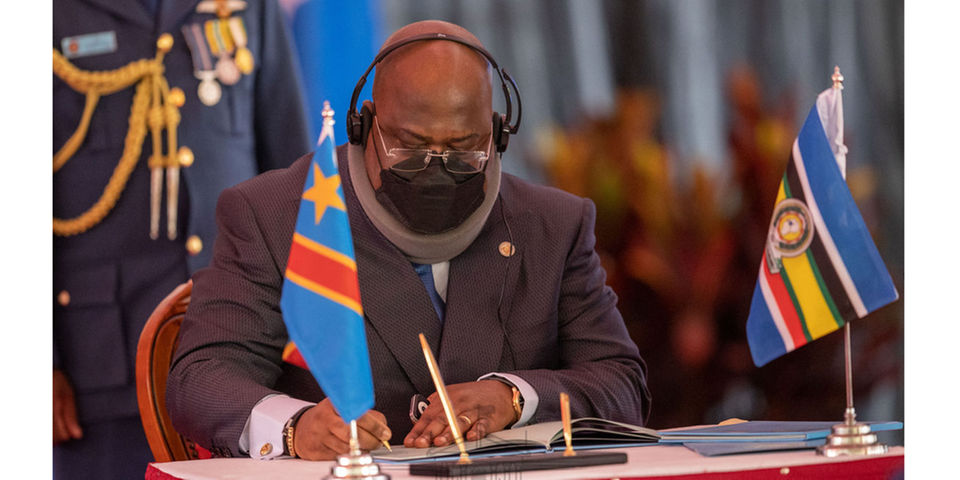
Our Projects are
Transforming African Trade
Quick Contacts
2nd Floor, Fidelity Insurance Centre Waiyaki Way, Westlands

Arusha. The way has been cleared for the full integration of the Democratic Republic of the Congo (DRC) into the East African Community (EAC).
This follows a recently held capacity-building exercise for officials of one of the new entrants into the bloc on various legal frameworks for integration.
The frameworks include the Customs Union, a key pillar that established zero duty on goods and services traded within the region.
The Customs Union also agreed on Common External Tariff (CET), whereby imports from outside the bloc are subjected to the same tariff when sold to any EAC partner state.
Under the Customs Union, which has been in force since 2005, goods moving freely within the EAC must comply with the EAC Rules of Origin.
According to the EAC secretariat, sensitization of the DRC officials in Kampala also focused on the One Stop Border Post (OSBP) legal framework and procedures.
“The main objective of the capacity-building workshop is to sensitise the DRC officials on EAC regional integration,” the organ said in a statement.
The DRC, a giant country in the heart of Africa, was admitted as a seventh member of the bloc on March 29th, 2022.
The sensitization stint of the senior officials was preceded by a training of 32 DRC border officials at the upcoming Mahagi/Goli (OSBP) between the DRC and Uganda.
The five-day workshop was facilitated by Trade Mark Africa under the funding of the USAID-Economic Recovery and Reform Activity (ERRA) programme.
The training targeted DRC government officials from the ministries of Trade, EAC Affairs, Agriculture, Bureau of Standards, Immigration and Customs Administration.
Speaking during the workshop, a customs officer in charge of trade facilitation at the EAC secretariat, Evariste Munyampundu, underscored the importance of regional integration.
He specifically emphasised the role of OSBPs, saying they were key in setting business linkages that are crucial in enhancing intra-EAC trade.
He urged the DR Congo officials to familiarise themselves with the EAC instruments, including the EAC Treaty and the Customs Union Protocol.
Others are the Customs Management Act, the OSBP Act,the Non-Tariff Barriers (NBS) Act, and the EAC Standardisation, Quality Assurance, Metrology and Testing (SQMT) Act.
The latter Act ensured that products produced in the region were of the required quality so as to facilitate industrial development and trade.
The legal framework also aims to enhance consumer confidence and limit consumer exploitation by increasing the number of products that conform to established standards.
The SQMT Act is also intended to harmonise national and East African standards with international standards to reduce costs, enhance compliance, and develop trade opportunities.
This will, in the long run, increase opportunities for companies within the EAC to participate in international technology transfer and, in so doing, facilitate regional and international trade.
Read original article
Disclaimer: The views and opinions expressed in this article are those of the authors and do not necessarily reflect the official policy or position of TradeMark Africa.